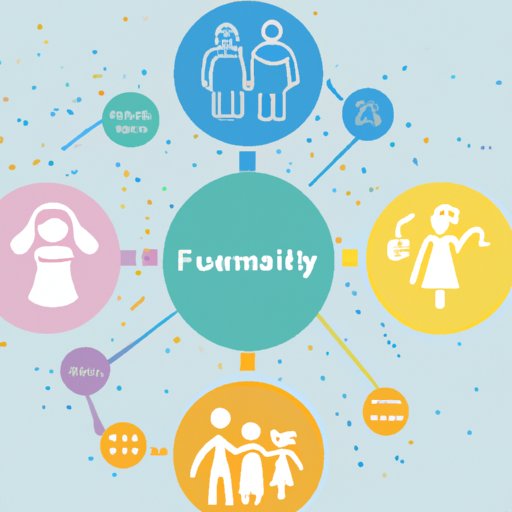Introduction
Family and consumer sciences (FCS) is a field that focuses on the relationships between individuals, families, and communities. It encompasses a variety of topics, such as health and nutrition, financial literacy, life skills, and more. The purpose of this article is to explore the fundamentals of FCS, including its role in society, the benefits of studying it, career opportunities, and its impact on education.

Exploring the Fundamentals of Family and Consumer Sciences
FCS is an interdisciplinary field that combines elements from many other disciplines, including psychology, sociology, economics, nutrition, and education. It focuses on the well-being of individuals, families, and communities in both the home and workplace. According to the American Association of Family & Consumer Sciences, “FCS prepares individuals for living in complex, diverse societies by focusing on the development of knowledge, skills, attitudes, and behaviors necessary to become independent, productive, and responsible citizens.”
The role of FCS in society is to provide individuals with the tools they need to lead successful lives. This includes teaching students about healthy lifestyles, financial literacy, and life skills. FCS also provides guidance on how to make informed decisions about important topics such as food choices, child rearing, and personal finances. Additionally, FCS provides resources and support for those who are facing difficult situations, such as poverty, abuse, or addiction.
An Overview of the Benefits of Family and Consumer Sciences
Studying FCS can bring numerous benefits to individuals, families, and communities. One major benefit of FCS is its focus on health and well-being. FCS teaches students about nutrition, physical activity, and lifestyle choices that are essential for maintaining good health. Additionally, FCS helps students develop the skills needed to make informed decisions about their own health and the health of their loved ones.
Financial literacy is another key benefit of FCS. FCS teaches students about budgeting, saving, investing, and how to use credit responsibly. By understanding how to manage money, students will be better equipped to make sound financial decisions throughout their lives. Furthermore, FCS can help students understand the importance of philanthropy and how to be socially responsible.
Finally, FCS teaches students valuable life skills. These include communication, problem solving, decision making, and conflict resolution. By learning these skills, students will be better prepared to navigate the complexities of adult life and build strong relationships with others.
Examining the Role of Family and Consumer Sciences in Society
FCS plays an important role in society by providing educational opportunities and career options. FCS courses are offered at the high school and college levels, giving students an opportunity to gain invaluable knowledge and skills. Furthermore, FCS programs provide students with the chance to pursue a career in the field. Possible career paths include teaching, nutritionists, social workers, and home economists.

The Impact of Family and Consumer Sciences on Education
FCS has had a profound impact on educational systems around the world. In the United States, FCS has been incorporated into curriculum development, teacher education, and professional development programs. According to a study by the National Council for Accreditation of Teacher Education (NCATE), “teacher preparation programs that incorporate FCS content have produced graduates who demonstrate increased competency in working with diverse populations, developing and implementing effective instructional strategies, and promoting positive student outcomes.”

Understanding the Careers Available in Family and Consumer Sciences
FCS offers a wide range of career options for those interested in pursuing a profession in the field. Teaching is one of the most popular career paths for FCS majors. Teachers can work in elementary, middle, or high schools, or even teach online courses. Additionally, FCS majors can pursue careers as nutritionists, social workers, and home economists.
Nutritionists focus on helping individuals and families create healthy diets. Social workers help people in need, such as those affected by poverty or abuse. Home economists specialize in researching and analyzing data related to consumer behavior and trends. All of these professions require a deep understanding of FCS principles and concepts.
Conclusion
Family and consumer sciences is an interdisciplinary field that focuses on the relationships between individuals, families, and communities. FCS plays an important role in society by providing individuals with the tools they need to lead successful lives. It also offers numerous educational and career opportunities. Finally, FCS has had a profound impact on education, particularly in the areas of curriculum development, teacher education, and professional development.
(Note: Is this article not meeting your expectations? Do you have knowledge or insights to share? Unlock new opportunities and expand your reach by joining our authors team. Click Registration to join us and share your expertise with our readers.)
